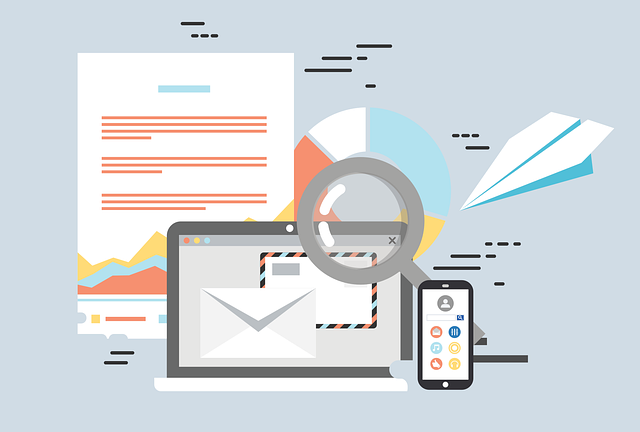AI systems are transforming auto repair businesses by enhancing profitability through advanced diagnostics and efficient repairs. Leveraging data from sensors, historical records, and real-time metrics, these systems predict vehicle issues, reduce manual inspection time, and minimize human error. Continuous learning improves diagnostic accuracy and repair techniques, fostering a dynamic and high-standard ecosystem. Adopting AI allows auto repair shops to deliver personalized services, boost customer satisfaction, and maintain competitiveness in the market, maximizing revenue potential through predictive analytics and optimized pricing strategies.
“Revolutionize your auto repair business with AI strategies that drive efficiency, enhance customer experiences, and boost profitability. This article explores three key areas where artificial intelligence is transforming the automotive industry:
– Efficient Diagnosis: Discover how AI algorithms streamline vehicle issue identification, reducing diagnostic times through machine learning patterns from historical data.
– Optimized Inventory: Dive into predictive analytics and automated ordering systems powered by AI to enhance parts management and minimize stockouts.
– Personalized Interactions: Uncover the potential of AI chatbots for 24/7 customer support, leveraging NLP to provide effective queries handling and tailored recommendations post-repair.”
- Leveraging AI for Efficient Auto Diagnosis and Repair
- – Exploring the role of AI in diagnosing vehicle issues accurately and swiftly.
- – Discussing machine learning algorithms capable of identifying patterns from historical repair data.
Leveraging AI for Efficient Auto Diagnosis and Repair

AI has the potential to transform auto repair businesses by revolutionizing the way vehicles are diagnosed and repaired, ultimately driving up profitability. AI systems can analyze vast amounts of data from sensors and historical repair records to identify patterns and predict potential issues before they become costly breakdowns. By leveraging machine learning algorithms, these systems can provide accurate, efficient, and personalized diagnoses, reducing the time spent on manual inspections and inaccurate guesswork.
Moreover, AI-powered robotic arms and automated repair tools enhance precision and speed during the fixing process, minimizing human error and maximizing efficiency. This not only reduces labor costs but also ensures repairs are carried out consistently and to a high standard. As AI systems learn from each repair, they can continuously improve diagnostic accuracy and repair techniques, fostering a dynamic and adaptive auto repair ecosystem that benefits both businesses and customers alike.
– Exploring the role of AI in diagnosing vehicle issues accurately and swiftly.

Artificial Intelligence (AI) is transforming the automotive industry, and its impact on auto repair businesses is profound. AI systems are revolutionizing vehicle diagnostics by offering swift and accurate issue identification. These intelligent tools can analyze vast amounts of data from sensors, historical repair records, and real-time performance metrics to pinpoint problems with remarkable precision. This capability leads to faster turnarounds and reduces the time mechanics spend on manual troubleshooting, ultimately improving auto repair profitability.
Moreover, AI enhances efficiency by learning from each diagnosed issue and repair outcome. Over time, these systems can predict potential failures, recommend proactive maintenance schedules, and provide tailored solutions based on vehicle specifics. By leveraging AI, auto repair shops can offer more personalized services, enhance customer satisfaction, and maintain competitive edge in a rapidly evolving market.
– Discussing machine learning algorithms capable of identifying patterns from historical repair data.

Auto repair businesses can leverage machine learning algorithms to uncover valuable insights from historical repair data, leading to significant improvements in profitability. These AI systems are adept at identifying intricate patterns and trends that might otherwise go unnoticed. By analyzing past repairs, parts usage, labor costs, and customer demographics, the algorithms can predict future maintenance needs, optimize pricing strategies, and streamline inventory management.
For instance, predictive analytics powered by AI can anticipate when a vehicle is due for routine service or a specific repair, allowing shops to proactively schedule appointments and order necessary parts. This not only enhances operational efficiency but also ensures customers receive timely and accurate services. Moreover, AI-driven insights enable businesses to adapt pricing based on demand, seasonal variations, and market trends, maximizing revenue potential.
AI strategies, particularly in diagnosis and leveraging historical data through machine learning, offer auto repair businesses a competitive edge. By implementing these advanced systems, repairs can be conducted more efficiently, reducing time and labor costs while enhancing accuracy. This not only improves customer satisfaction but also boosts profitability by optimizing resource allocation. AI systems for improving auto repair profitability are no longer a luxury but a necessity in today’s market.
